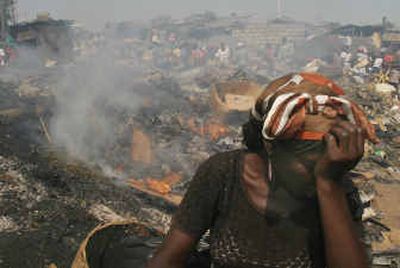Donors vow to help rebuild Haiti

CAYENNE, French Guiana – World donors approved $1 billion in aid projects for Haiti on Friday, promising to repair its roads and rebuild its battered power grid, in an effort to help the Western Hemisphere’s poorest nation as it prepares for fall elections.
The relief is a confirmation of money pledged last summer, but diplomats attending the one-day summit said assigning specific projects to each nation would increase accountability. In July, donors pledged $1.3 billion for Haiti but less than a fifth of it has been disbursed.
“If a project isn’t going well or according to plan, you’ll know who to ask,” Canadian Foreign Minister Pierre Pettigrew said at the summit organized by France and held in French Guiana’s capital, Cayenne.
A little more than a year after former President Jean-Bertrand Aristide was ousted amid an armed rebellion, Haiti’s roads, schools and hospitals remain in disrepair, undermining faith in the new government. Languishing projects also have meant few new jobs for Haitians, most of whom are unemployed and without access to health care, running water or electricity.
Of the 380 reconstruction projects approved Friday, most were assigned to half a dozen nations, including France, the United States and Canada, as well as the European Union.
The projects range from repairing major roads and improving the electricity grid to giving Haitians access to basic health care and running water.
Frederick Schieck, administrator of the U.S. Agency for International Development, said the U.S. government was pleased to see so many countries stepping forward to help.
“It’s terrible to have a country this poor in our hemisphere,” said Schieck. “This aid will help change that.”
Projects paid for by the United States include water purification, garbage collection and HIV/AIDS awareness education.
The promised aid comes as Haitian police and 7,400 U.N. peacekeeping forces struggle to curb escalating violence while preparing for elections to fill the power vacuum following Aristide’s ouster.
Armed ex-soldiers who helped oust Aristide still control much of the countryside while loyalists and detractors of Aristide wage frequent gunbattles in the slums of Haiti’s capital, Port-au-Prince. More than 400 people have died since September in clashes between police, former military and Aristide militants.
Juan Gabriel Valdes, U.N. envoy to Haiti, said security would improve when Haitians saw their lives were improving. “We know misery leads to violence,” he said.